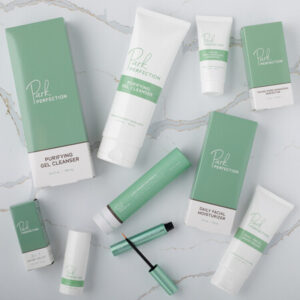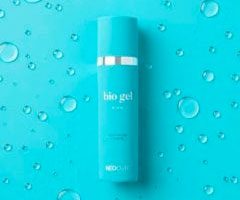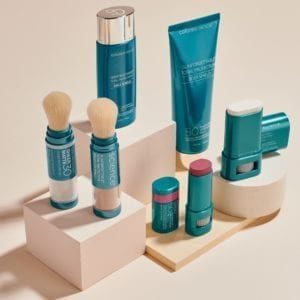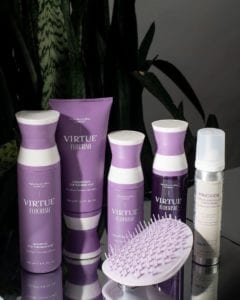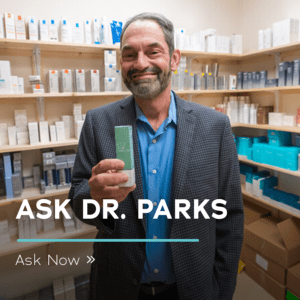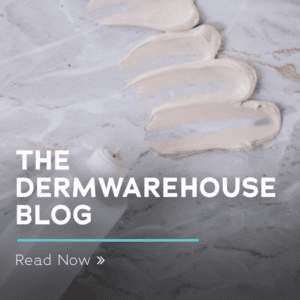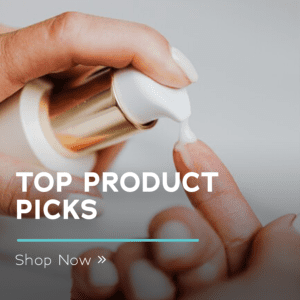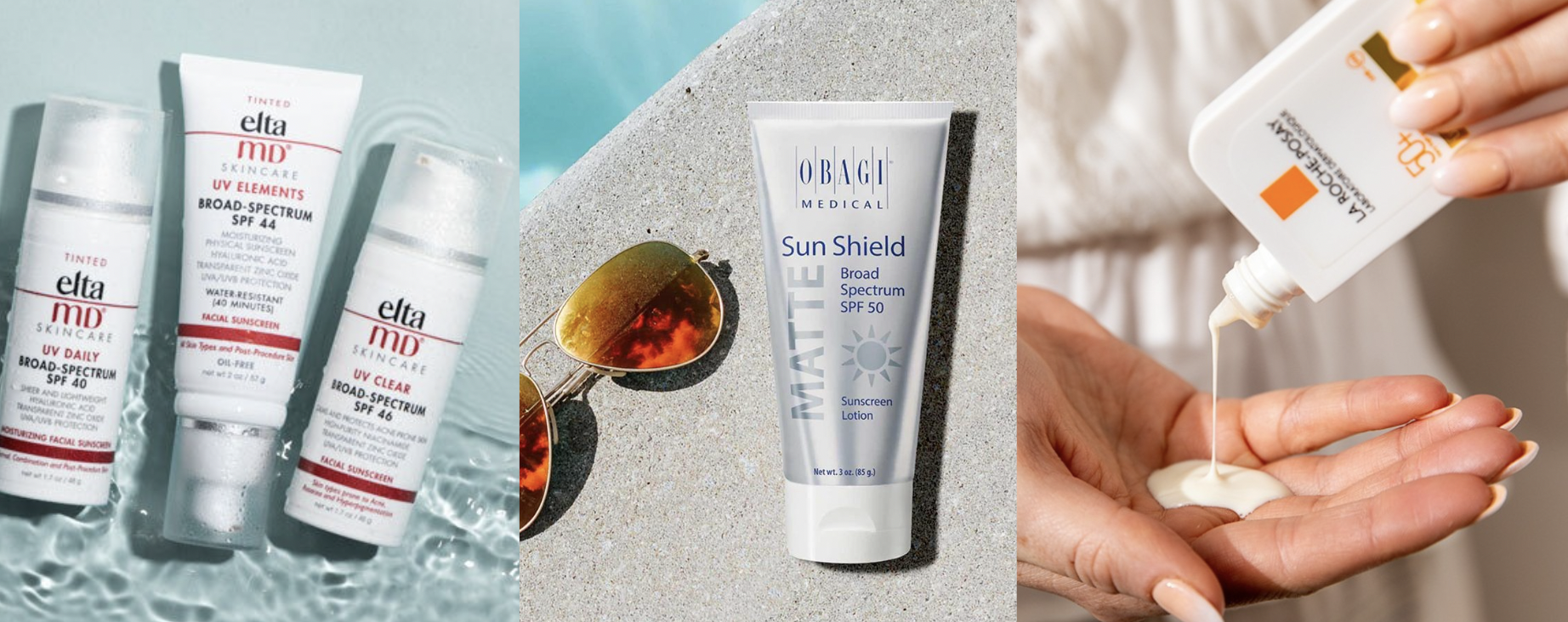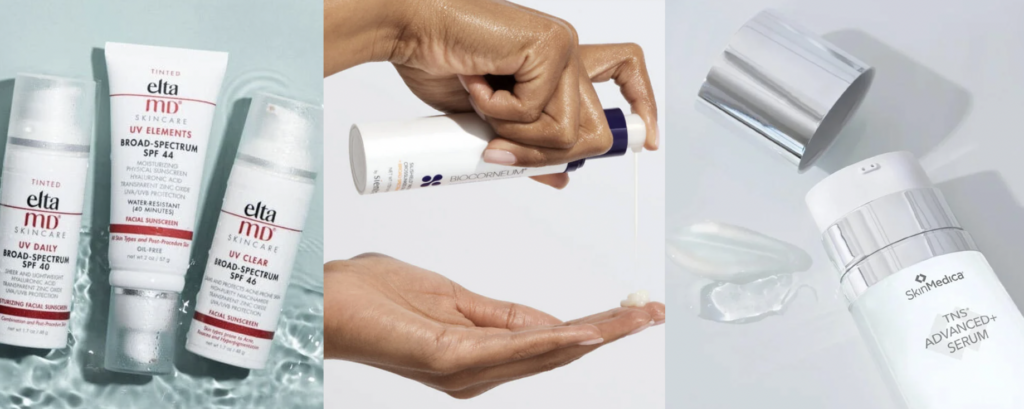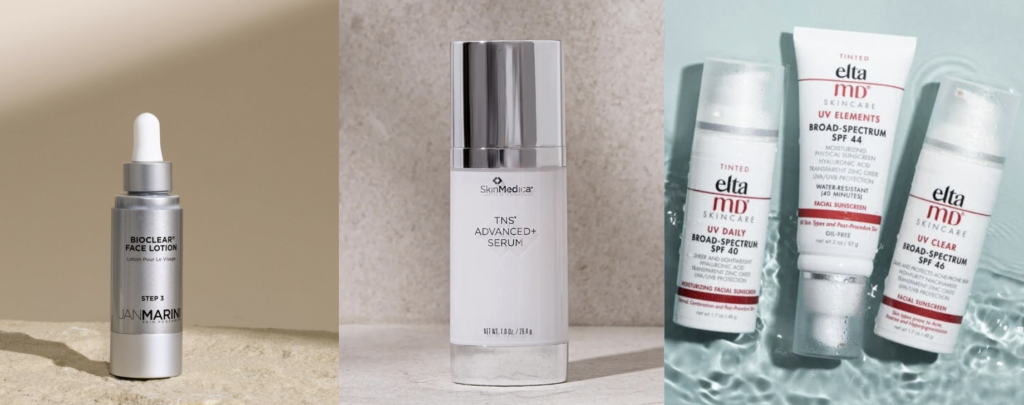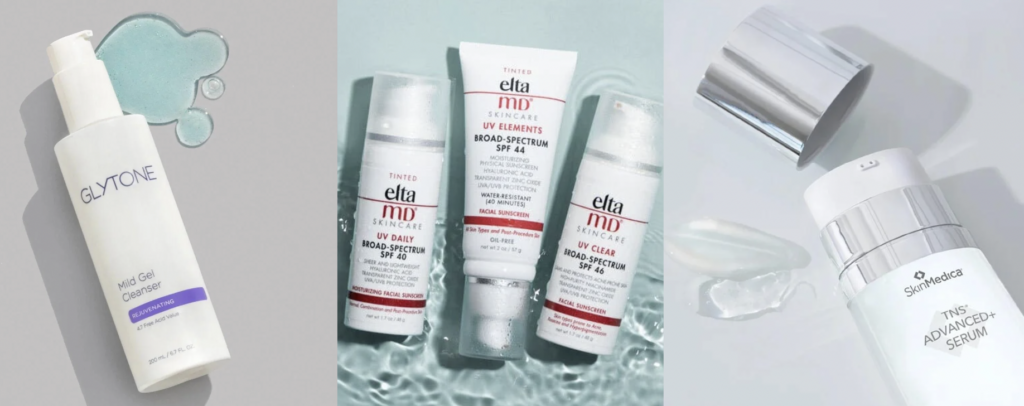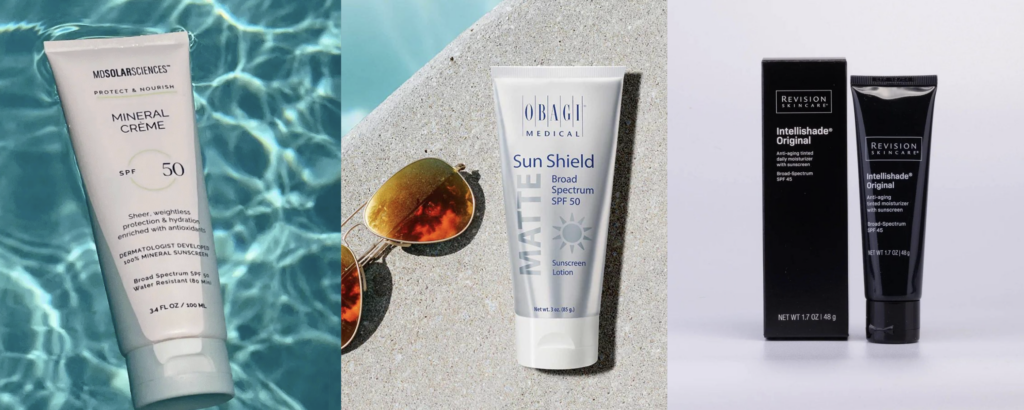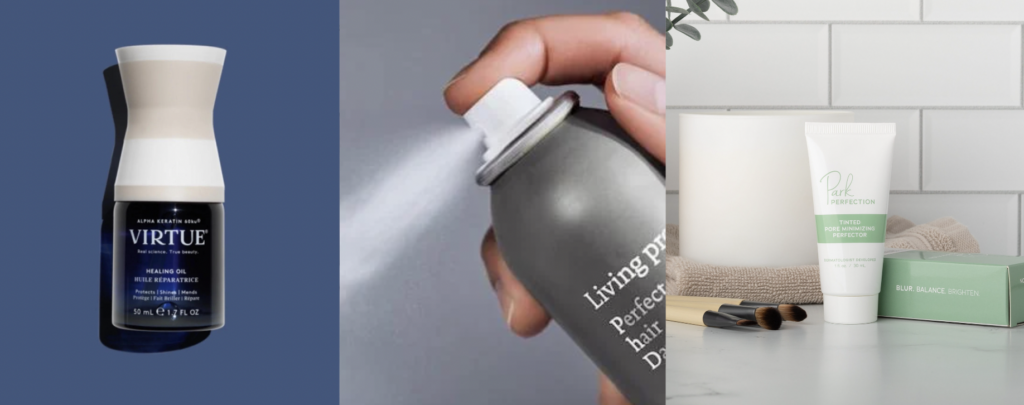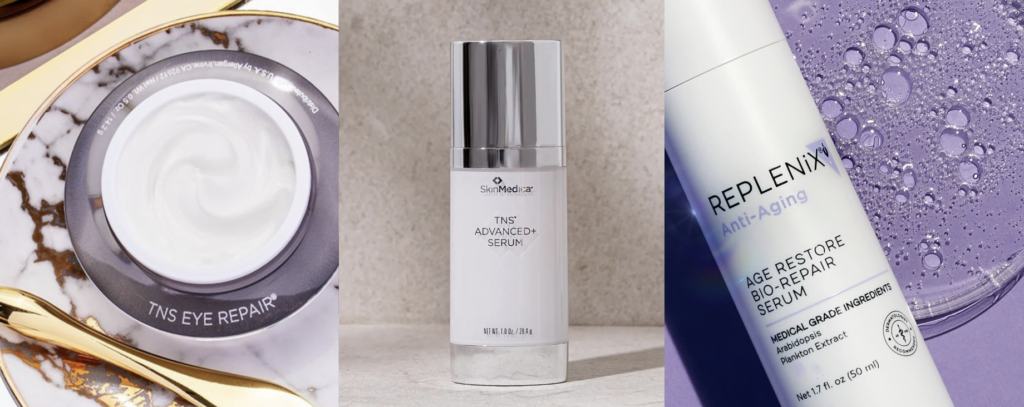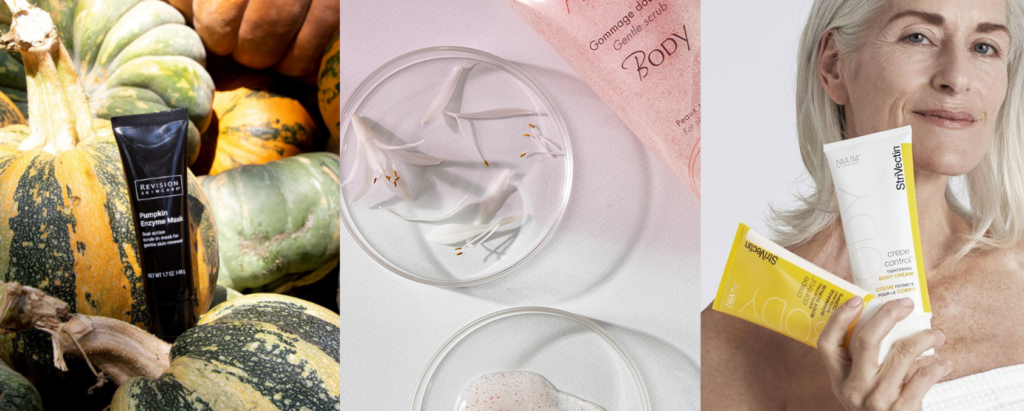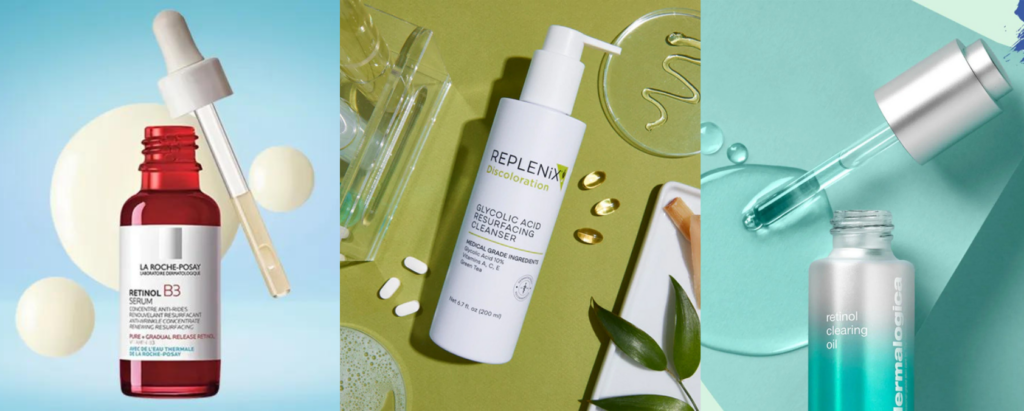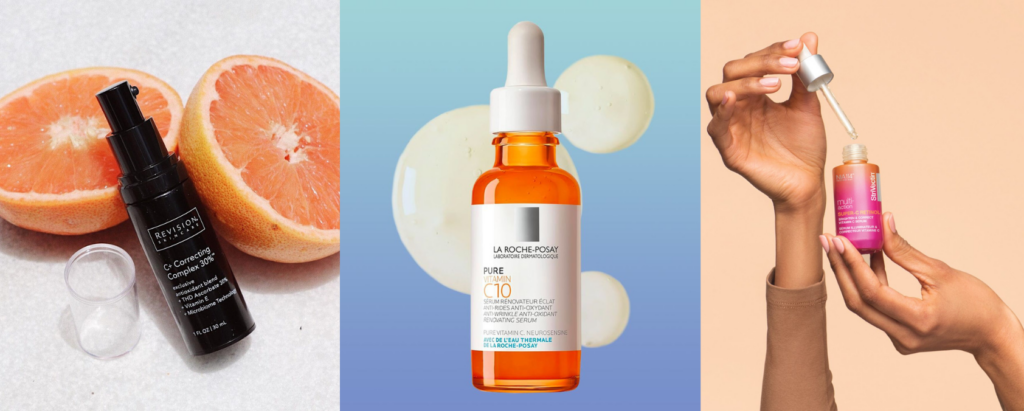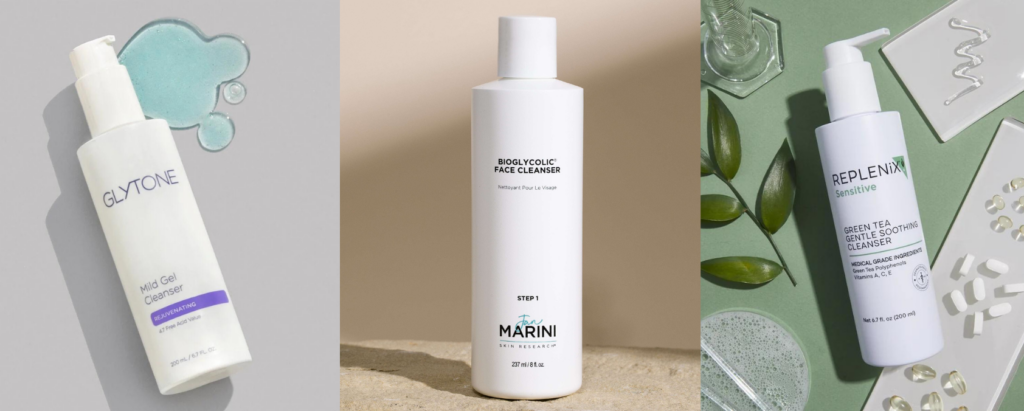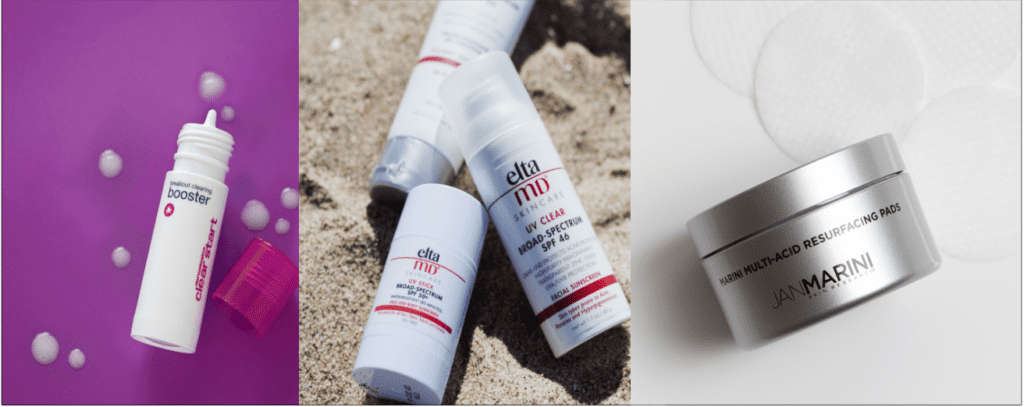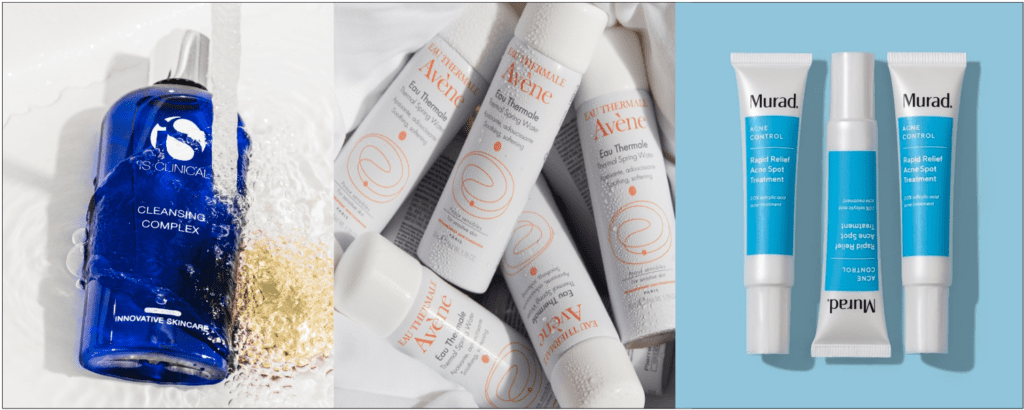It’s no secret that you should be wearing an SPF every day, but anyone with acne-prone skin knows that finding an SPF that will protect your skin without causing breakouts is often difficult. Many SPF products on the market have an oily consistency, making them great for body lotions but not so much for the face. “Using the right skincare can make a world of a difference at keeping breakouts at bay, especially for those with acne-prone skin who may notice irritation just from using the wrong ingredients,” says Dr. Parks, a board-certified dermatologist and the founder of DermWarehouse.
What Causes Acne?
“Most often in acne-prone skin types, acne is caused by a buildup of dirt, dead skin cells, and oil that gets clogged in the pores,” says Dr. Parks. “I often see oily skin types and acne-prone skin go hand in hand, which signals to me that breakouts are caused by an over-production and subsequent buildup of oil,” he says.
That isn’t the case for every breakout, though. Certainly not every breakout is caused by the same issue. Many patients suffer from hormonal acne, which is characterized by cyst-like blemishes most commonly along the jawline, chest, and back. Other breakouts can be caused by fungal infections or even reactions to other products. “If you do get frequent breakouts, its important to narrow down the cause before you begin introducing new products to your routine,” says Dr. Parks.
Related Blog Post: Glycolic Acid Vs. Retinol
How Do I Choose the Best Sunscreen for Acne?
“The best sunscreen for acne-prone skin are formulated with non-comedogenic ingredients, meaning they don’t clog your pores and cause dirt and oil to build up and trigger acne breakouts,” Dr. Parks says. Non-comedogenic is a term used to describe ingredients that do not contain comedones, which are substances that sit over the skin and do not absorb. Ingredients like petroleum jelly are a great example of a comedogenic skincare product because it sits on top of the skin, creating a barrier. These products can be great for some, but cause dirt and oil to build up underneath and cause breakouts and other issues among others.
Non-comedogenic skincare products are becoming more common in the skincare market, and luckily that extends into SPF these days too. When picking the best sunscreens for acne and acne-prone skin, opt for products that are tagged as non-comedogenic. At DermWarehouse, we have a filter to let you shop products with this designation to make it easy! You can shop our selection of non-comedogenic SPF products here.
Related Blog Post: Does the Sun Help Acne?
Is Sunscreen Safe for Acne Prone Skin?
Yes and no. While it’s true that some SPFs can worsen acne symptoms, that doesn’t mean you should cut an SPF from your skincare routine entirely if you’re experiencing breakouts. “Sunscreen is possibly the most important part of any skincare routine—remember that UV exposure can literally cause cancer!” says Stefanie Parks. “Not only is sunscreen safe, but it can actually help your acne heal faster by protecting your skin from UV damage that can irritate blemishes,” says Stefanie.
With that being said, there are ingredients you want to watch out for when picking the right SPF product to use. Using sunscreen when you have acne prone skin is about finding the right products that will nourish and protect your skin without contributing to oil buildup that can cause even more breakouts. Comedones, which are ingredients that cannot be absorbed into the skin and create a barrier over it, can cause breakouts by preventing your skin from regulating its oil production. Some SPF products contain comedogenic ingredients such as coconut oil and other oil-based ingredients that sit on top of the skin.
“Some people can handle comedogenic ingredients, while others will find that oils and jellys such as petroleum jelly only cause more issues,” says Dr. Parks. Luckily, you can select non-comedogenic as an ingredient option when shopping for skincare and SPF at DermWarehouse. Sunscreens without comedogenic ingredients are also formulated with nourishing ingredients that can help acne prone skin even more, such as moisturizers and other antioxidants that can protect and nourish.
Related Blog Post: Does The Sun Help Acne?
Ingredients to Avoid
As we mentioned before, comedogenic skincare ingredients are products that sit on top of the skin, creating a barrier. While DermWarehouse has a filter that lets you shop products that are non-comedogenic, it does help to learn which ingredients are comedogenic so that you can more immediately recognize which products will work for you if you have acne-prone skin.
Ingredients like cocoa butter, coconut oil and coconut butter, beeswax, argan oil, ascorbyl palmitate, and avocado oil are a few of the many comedogenic ingredients that we commonly see in skincare products. “Oils and butters are highly likely to contribute to breakouts, especially for those who have oily skin as well,” says Dr. Parks. “As long as you stay away from SPFs with these ingredients, you shouldn’t worry too much about triggering a breakout. However, you should also be mindful of how your skin reacts to different ingredients like fragrances,” he says.
Ingredients to Use
Most would assume that acne-prone skin caused by an overproduction of oil would mean that getting rid of the oil controls the breakouts, but that can often cause more harm than good. “Controlling breakouts caused by oil overproduction is all about balancing oil production rather than stopping it,” says Dr. Parks. “You want to cleanse the skin, but then you want to add in hydration and moisture within your skincare routine so that your skin doesn’t end up producing even more oil,” he says.
Many SPF products are formulated with hydrating and moisturizing ingredients that will nourish your skin to create a balance. Vitamin E, niacinamide, and hyaluronic acid are all great ingredients to watch for in SPF. One of our most popular products, the Elta MD UV Clear Broad Spectrum SPF 46, contains all of the aforementioned ingredients. This is also one of the most popular recommendations among dermatologists, who applaud it for its weightlessness on the skin while still being a powerful protecting product. “This is my top choice for SPF and actually the product I use myself,” says Dr. Parks.
Tinted sunscreens can also be a great alternative to makeup during the day, especially if wearing a lot of makeup triggers breakouts on your skin. The Elta MD UV Physical Tinted Broad Spectrum SPF 41 is a great option, as its skin tint will provide light coverage to even out your skin tone without weighing your skin down. It’s also formulated with the same great ingredients as the Eltra MD UV Clear SPF we mentioned above, so you’ll get a lot of those skincare benefits as well.
Other popular SPF products from DermWarehouse include the SkinMedica Essential Defense SPF, and the La Roche-Posay Anthelios 60 SPF which are both formulated with non-comedogenic ingredients. These are both SPFs with a higher protection level, making them great for your face where more delicate skin means that you will often want more protection than the rest of your body.
If you plan on wearing SPF under your makeup, which we always recommend, using a product with mattifying ingredients like the Obagi Sun Shield Matte Broad Spectrum SPF 50 is a great option. This formula can help control shine caused by oil production for oily skin types, acting as a primer for your makeup. “The base for any makeup routine should always be skincare, but it should also always include an SPF,” says Dr. Parks, who suggests using a product that you can reapply throughout the day.
SPF is a non-negotiable part of any skincare routine, especially if one of your skincare goals is to maintain youthful skin later in life. “Wearing SPF every day can help prevent those signs of aging that become more prevalent with damaged skin,” says Dr. Parks. The sun can cause life-threatening harm in the form of skin cancer, but it can also trigger skin concerns by exacerbating the signs of aging and making fine lines, wrinkles, and hyperpigmentation appear more prevalent and at a younger age.

